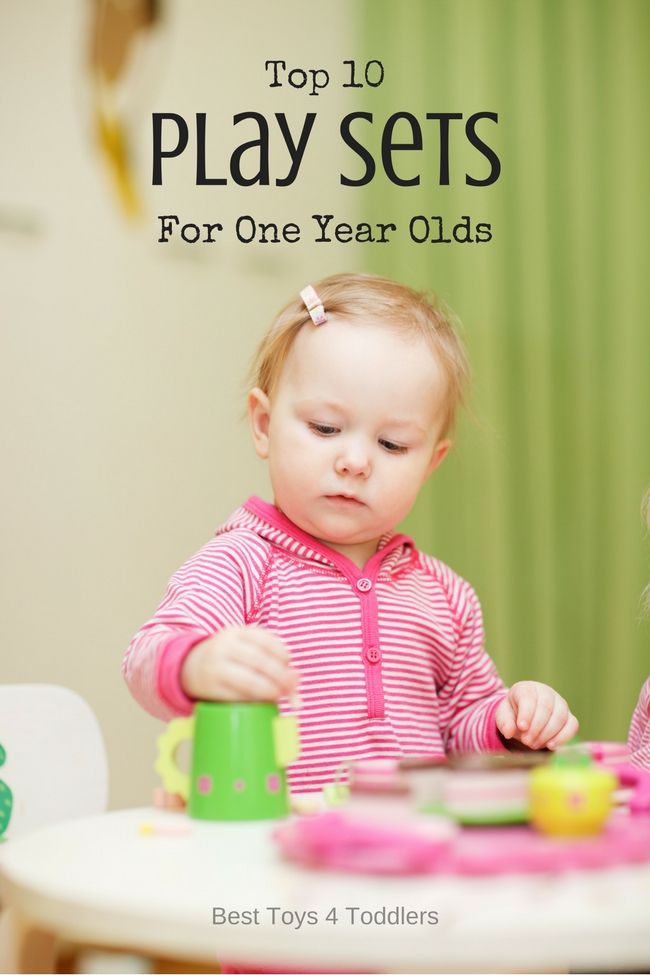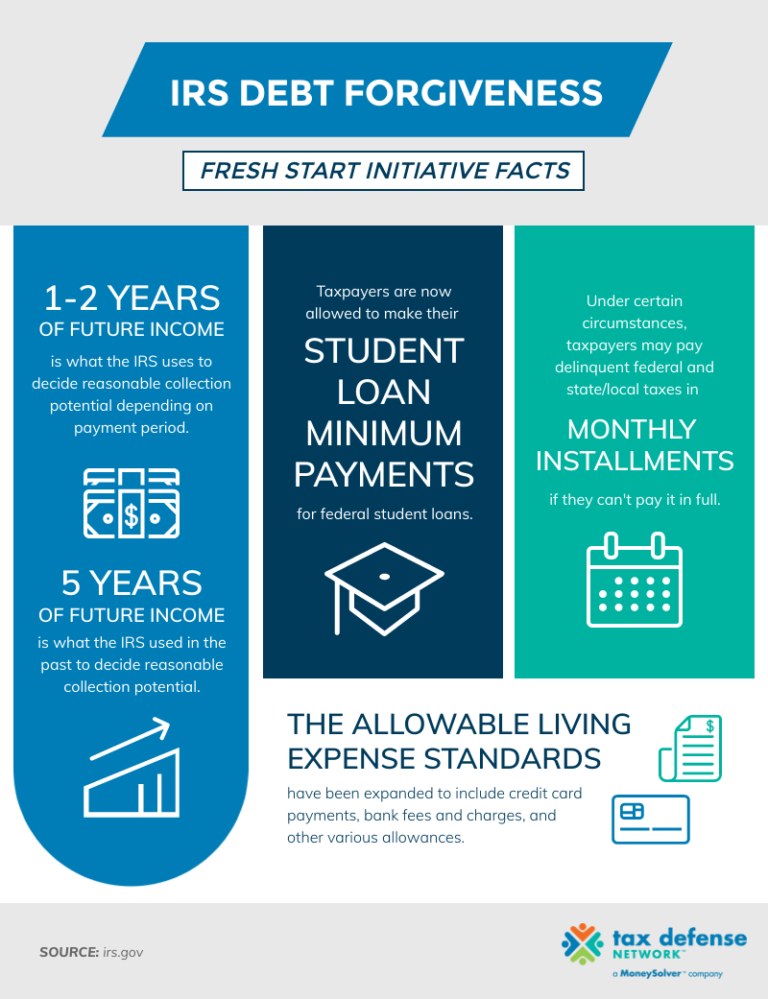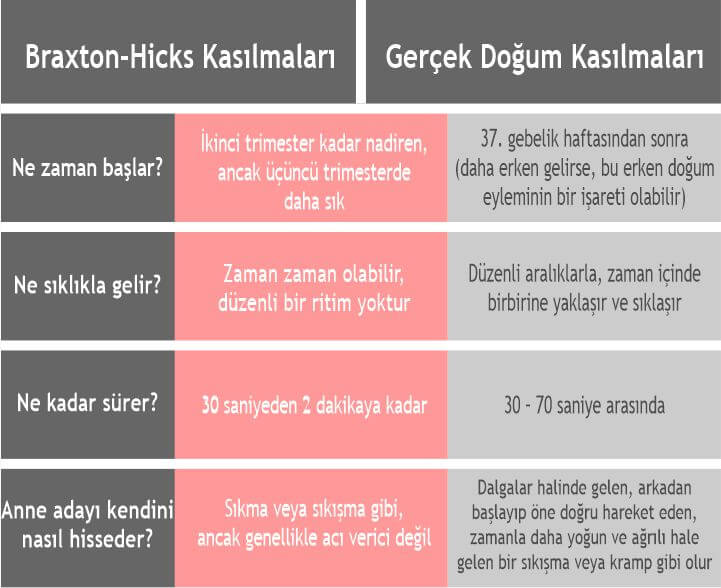How young can you put a child in daycare
3 Risks of Starting Too Early
With a toddler, one of the many things you need to figure out is daycare. Daycares have many benefits, including providing young children with a place to play and socialize with other children, allowing them to gain important skills in cooperation, communication and independence.
Research published by the Journal of Epidemiology and Community Health even shows that children who attend good quality daycare services are better behaved and better adjusted than those who do not.
There is not really a worst age to start daycare, only a recommended minimum age of at least 12 months. Some people put their children in daycare as early as 8 weeks of age, while some wait until their child is a few years old. Just because 12 months is the minimum age many people find acceptable for starting daycare, that does not mean your child will be ready for daycare at that age nor does that mean it is not possible for your child to be ready earlier than that.
The worst age to start daycare for your child is when they are not socially, emotionally, and physically ready for it yet.
Deciding to enroll your child daycare depend on a number of factors, but it is ultimately a personal choice, affected by your child’s personality, the availability and quality of facilities in your area, the length of your parental leave and your family’s own work and time schedule.
3 Risks of Starting Daycare Too Early
-
Poorer Parent-Child Attachment
Between 0 and 18 months of age, stability and continuity of care is of utmost importance to a child’s development. Very young children thrive on one-on-one attention from a single caregiver who is sensitive to their needs.
This highly sensitive one-on-one care gives children the chance to recognize their primary caregivers and form strong attachment bonds which allow a child to feel safe and protected around them.
Putting a child in daycare too early for too many hours may result in impaired or insecure parental-attachment bonds, due to the reduced amount of time the child is able to spend with his or her parent(s).
In a daycare center, a single caregiver will more than likely have multiple charges, and a child will see multiple caregivers in a day, disrupting care continuity and inhibiting a child’s ability to form attachment bonds to a single caregiver.
Insecure attachment is most often seen when a child is left in hospital care without parental interaction for days or weeks at a time. This is of course very different from a daycare set-up where a child returns to their parent’s care at the end of the day.
On its own, daycare is not the biggest indicator in the formation of parent-child attachment. Maternal sensitivity is a much larger factor in the formation of secure parent-child attachment.
Putting very young children in daycare is not necessarily harmful or disruptive to parent-child attachment. Studies show that daycare’s negative effects to parent-child attachment only arise when in conjunction with low parental sensitivity and poor quality of daycare services and in the context of long periods of non-parental care.
Daycare can work perfectly well for young children and toddlers, as long as there is a low carer to child ratio that allows for a more consistent set of caregivers who are more likely to gain sensitivity and respond quicker to their charge’s individual needs.
-
Increased Stress Levels
Studies involving children attending daycare services have shown that their cortisol or stress hormone levels rose significantly in the mid-afternoon, as compared to when the same children were at home.
The increase in cortisol levels were also shown to be most prominent in toddlers and babies under 3 years of age.
This pattern of elevated stress hormone was recorded even in children who had been attending daycare consistently for a period of time, indicating that the increased stress levels were not simply the result of an adjustment period to a new environment.
Cortisol or stress hormone levels in humans naturally fluctuate throughout the day.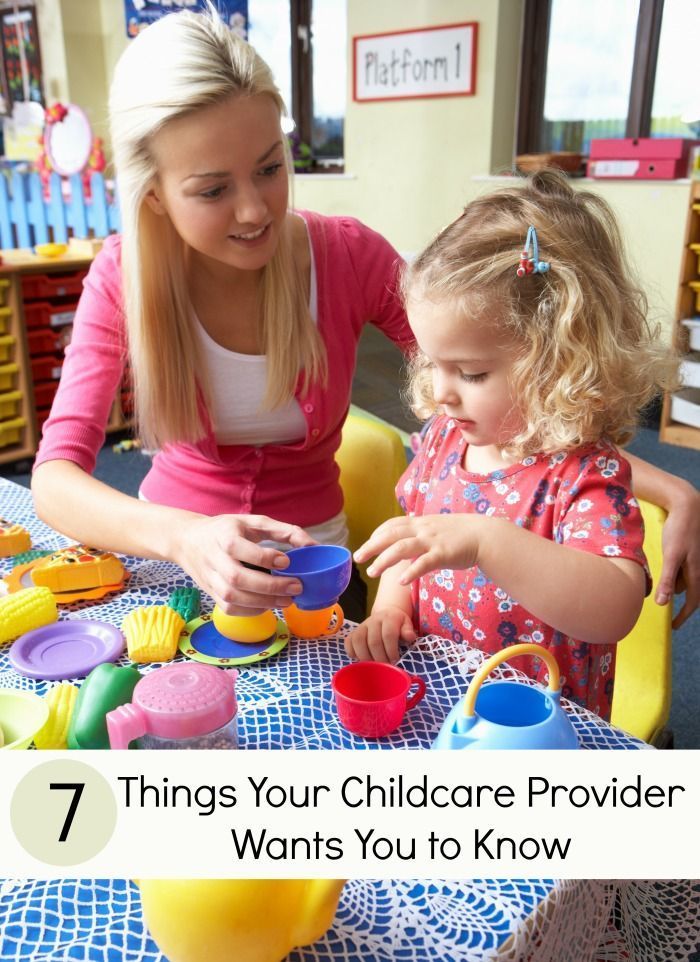 Levels are normally highest in the morning and lowest in the evening to aid in natural sleep-arousal patterns (waking up in the morning and falling asleep at night).
Levels are normally highest in the morning and lowest in the evening to aid in natural sleep-arousal patterns (waking up in the morning and falling asleep at night).
It has been hypothesized that the high levels of peer interaction in daycare settings leads to the increase in stress levels. Being in loud, highly stimulating environments for a stretch of time is stressful for adults, let alone children.
Stress should not be harmful to anyone in small doses. For children under 3, sticking to half days in daycare or breaking up long daycare hours with an at-home babysitter or nanny may be a better option.
Transitioning is also important. Integrating daycare into a child’s routine slowly and in the presence of a parent lowers the stress and atypical cortisol levels in toddlers. Strong attachment bonds with a parent are also important. Research has found that children who have secure attachment bonds to their mother also had lower stress levels at daycare.
-
Behavioral Issues and Aggression
An article from the Journal of Early Child Development and Care links entry into long hours of non-parental childcare before the first birthday with an increased incidence of poor social behavior, behavioral problems and aggression.
When familial influences were considered however, maternal sensitivity was still the biggest indicator of behavioral outcomes in children and offsets the potential negative effects of early childcare.
The quality of daycare services also matters. Children who receive high quality daycare services at any age have better pro-social behaviors and fewer instances of aggression, irregardless of the number of hours spent in daycare.
Things to Consider Before Putting Your Child (of any age) In Daycare
Your Child’s Readiness
The most important thing you need to consider is your child’s readiness to start daycare. Children need to have some level of independence going into daycare, including being able walk without assistance and engaging in play with other children.
Another indicator of your child’s readiness to start daycare is their ability to communicate their needs to caregivers, physically, emotionally, and perhaps verbally.
Most daycares will have schedules which indicate nap times, meals, and play times.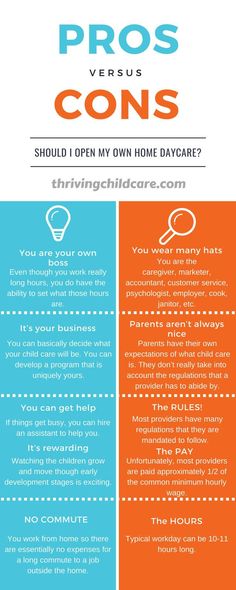 Your child needs to be able to adjust to routine to be able to adjust to daycare, especially if they are used to eating whenever they want and napping as long as they want. Simple ways of helping your child adapt to routine include serving snacks or reading bedtime stories at the exact same time every day.
Your child needs to be able to adjust to routine to be able to adjust to daycare, especially if they are used to eating whenever they want and napping as long as they want. Simple ways of helping your child adapt to routine include serving snacks or reading bedtime stories at the exact same time every day.
Length of Time in Daycare
Children, especially those under the age of 3 experience heightened stress levels during their time in daycare. Daycare can be an enriching experience for toddlers and young children, but extended periods in daycare could increase their stress levels.
Children who are shyer and more reserved are more likely to experience emotional stress when left at daycare. Using short durations to slowly transition your child into non-parental childcare may help decrease daycare stress levels.
To avoid these high stress levels, try to keep daycare hours to a minimum, especially for children under 3. If you know your child is prone to anxiety, try incorporating at-home childcare with a nanny or babysitter along with daycare. Once your child is older and more comfortable with daycare, you can increase their number of hours at daycare.
Once your child is older and more comfortable with daycare, you can increase their number of hours at daycare.
Quality of Daycare Services
According to one study, high quality daycare in early childhood not only improved children’s behavioral and social outcomes, it also improved academic performance all the way up to adolescence.
Aside from having adequate safety measures and childproofing, policies and licensed trained staff, try to look at factors which will affect your child’s emotional, social, and cognitive well-being.
A good daycare center should have a caring, sensitive environment with a low caregiver to child ratio to ensure that every child’s needs are met. This is especially important if your child is high needs or has specific medical or dietary requirements. For infants under 15 months old, there should be at least a 1:4 ratio of caregivers to infants.
A high quality daycare should also have a low caregiver turnover rate. Having the same caregiver every day gives children a sense of stability and permanence.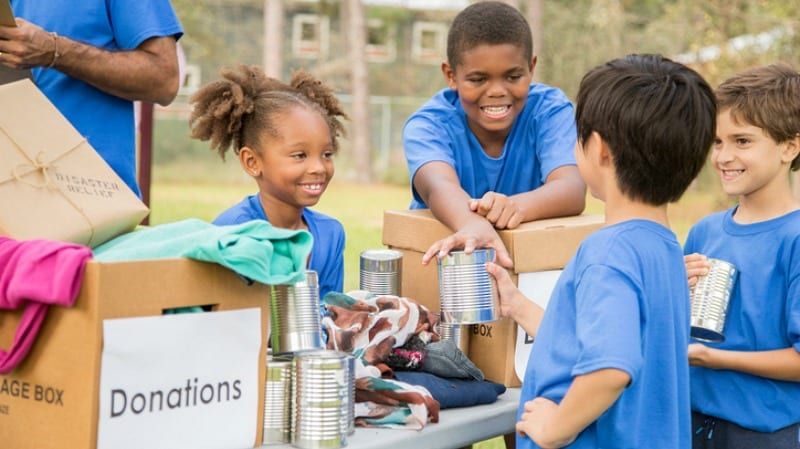 Ideally, infants should have the same caregiver for at least a year in order for them to form attachment.
Ideally, infants should have the same caregiver for at least a year in order for them to form attachment.
The Takeaway
While there is no worst age to start daycare, putting your child in daycare before they are ready, for long stretches of time, or in a subpar daycare center can have negative effects.
The effects of the quality and duration of non-parental childcare together are important. Using a high quality service as well as starting with shorter durations of daycare is important for minimizing stress and behavioral effects in young children. Being present with your child while they adapt to the daycare environment eases stress levels and improves secure attachment bonds between you and your child.
Whether or not your child thrives in daycare is also dependent on their emotional maturity. More outgoing and friendly children will have a better experience in daycare, while children who are quiet and prefer to keep to themselves may have a harder time adjusting to being in daycare.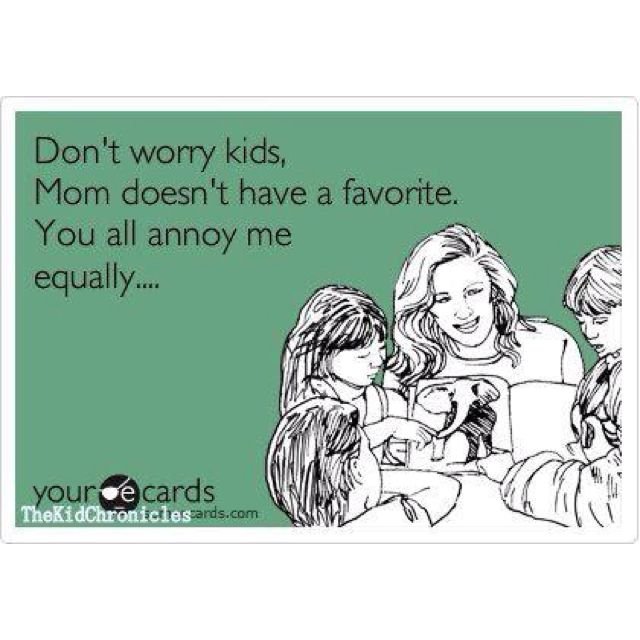
Do not worry too much about the worst age to start daycare when going for non-parental child care. Focus your energy on helping your child while they transition into daycare and finding good quality daycare centers that will provide a healthy nurturing environment for your child at any age.
Best age for kids to start daycare?
Question
Where I live there is some social pressure to start one's child/toddler at a daycare/preschool at the age of 2. The preschool/daycare we selected is considered one of the best and has been around for 30 years, so I know he will be in good hands. They have a special program, routine set up that includes independent play, group play, outdoor play and a group meal.
My dilemma: what do you think is the optimal age to place one's toddler/child in a daycare/preschool setting? Should it matter that 80-90% of his peers at age of two are already in such a preschool/daycare setting? Will he be behind socially or emotionally if I wait 3, 6 months-one year?
If I do start him, I would only put him in for 1/2 day and he would take his afternoon nap at home and If I don't, I would continue to spend most days with him, except 2-3 afternoons when I teach at a local college or would try :) to work out. I am anxious for your response.
I am anxious for your response.
Answer
What a tough dilemma! It's hard when your social circle is all parenting in a certain way.
From your letter, it sounds to me like your choice is whether to keep your two year old home with you except for two or three afternoons a week when you teach, OR to put him in morning care, where he would have lunch there but would come home to nap. I assume that you would still be gone 2-3 afternoons each week, so on those days he would be in some kind of care for the full day?
You ask if he will be behind socially or emotionally if you wait. Actually, emotional development comes from his interaction with you, so he will be ahead emotionally if you wait. Socially, he will not be behind if you wait three or six months, or even a year, as long as he has other social experiences during that time, and it is especially good if those social experiences include you (more below on this) because your presence facilitates the development of social skills.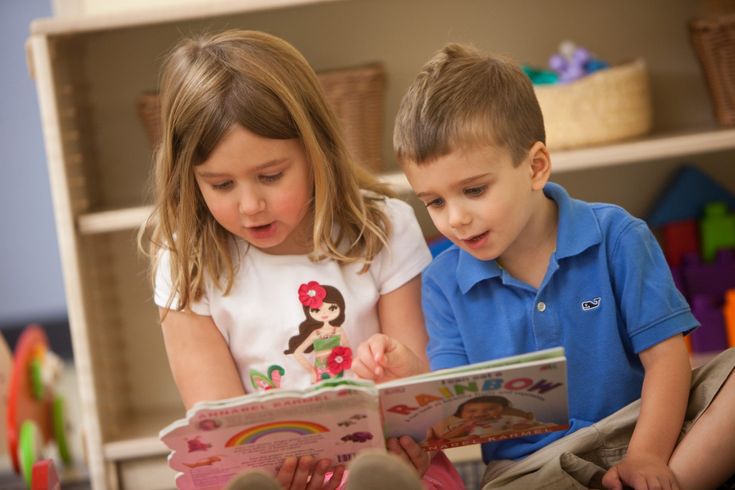
Early school (and two years old is early developmentally) can even be a risk factor, because it asks so much of kids. We don't see this because we don't want to see it, but many two year olds who start school begin compensating for the stress in other ways -- they regress, they hit their little siblings, they have bad dreams, they get more clingy.
But school is also sometimes just fine for kids this age. I actually recommend it if a sibling is expected, because then it gives the child a world of his own, a bigger world, so he is not confined to a world where suddenly an interloper (the baby) dominates and is always at the center. When it is for only three hours a day, it is manageable for most kids, so the stakes are lower than all day.
Bottom line, it depends on your child. Groups will be stressful for a two year old no matter what, but they also broaden the child's world. Some kids will be more stressed than others by the sensory overload, noise, difficulty of making their needs known to caregivers, competition for toys, necessity of accommodating their own needs to the schedule, etc.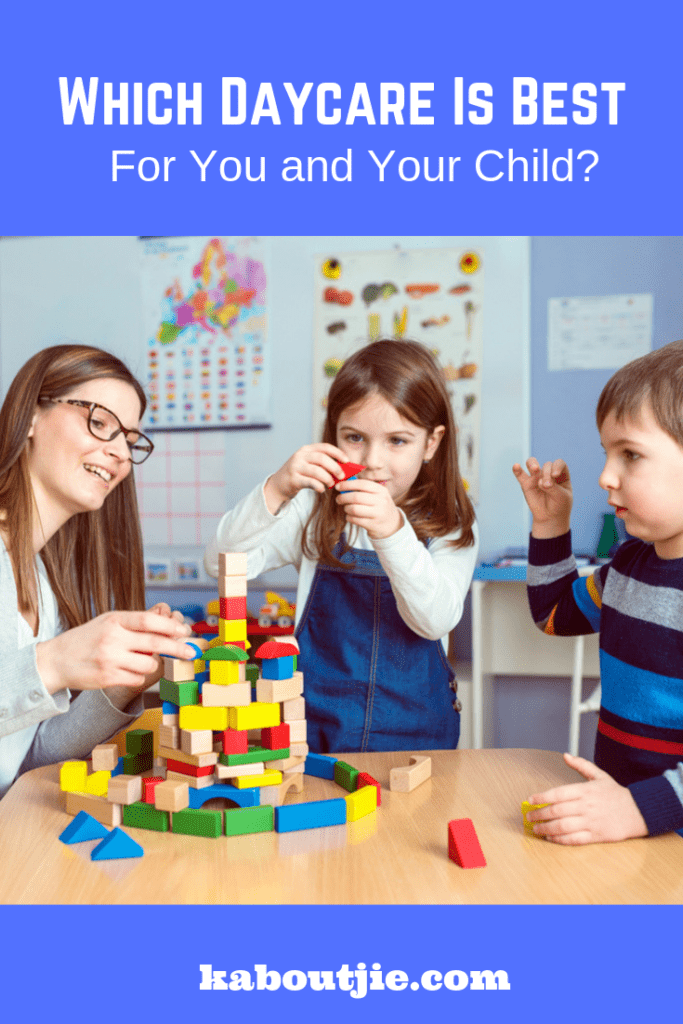 This is not a normal state for a two year old. It is a modern idea that does not necessarily take little ones' needs into account, since it is designed for the needs of adults, who need to work. We justify childcare as good for kids socially or academically, but it is not actually good academically (more on that below) and it is over-rated socially (more on that below.)
This is not a normal state for a two year old. It is a modern idea that does not necessarily take little ones' needs into account, since it is designed for the needs of adults, who need to work. We justify childcare as good for kids socially or academically, but it is not actually good academically (more on that below) and it is over-rated socially (more on that below.)
Many toddlers get overwhelmed and frightened easily in groups, which is why they lash out aggressively, or get more shy. Sometimes the child holds it together in the group setting but as soon as the parent appears to pick him up, he bursts into tears. That means it was hard for him to be in school during that time and while he seemed fine to the teachers (in other words, did not create problems), he actually had a soaring heart rate and high levels of cortisol and other stress hormones, if we had measured them. Now that the parent has returned, he is safe to cry and discharge all that stress. So if your child shows this behavior, you may want to avoid having him in a group without you there until he is a bit older.
So if your child shows this behavior, you may want to avoid having him in a group without you there until he is a bit older.
However, if your child is easily comfortable in groups, then short periods in a group will be stimulating for him and he will be able to cope with your absence. So the bottom line here is your child's personality. If he is the kind of person who always asks to see other kids, then maybe the group will be good for him. If not, then you may want to wait until he is a bit older.
As I said, some kids will be more stressed than others. One factor is the child's own sensory processing and temperament, including how much time he likes alone vs in groups. But another crucial factor is whether the child feels there is an adult available to help him navigate this new environment.
Here's the research.
- The earlier kids start daycare, the harder it is on them. In the studies that show better daycare results, like the Norway study, the kids did not begin daycare until about one year (since Norway has paid parental leave.
 )
) - Quality of care and relationship with caregivers makes a big difference. There is encouraging research that when children are cared for at home for the first nine to 18 months AND have a high quality care situation, they do much better in daycare. There is also encouraging evidence that kids who have better relationships with teachers don't have the worrisome cortisol changes that many kids in full time daycare show. (Badanes et al 2012*).
- Length of time in daycare each day makes a difference. Children who are younger than 36 months old often find being at daycare all day to be stressful. We know this because their cortisol levels get elevated, compared to kids who are at home during the day. Here's a link to a meta-analysis of daycare studies that came to this conclusion: http://www.sciencedirect.com/science/article/pii/S0885200606000421
- Some kids are predisposed to find childcare more stressful.
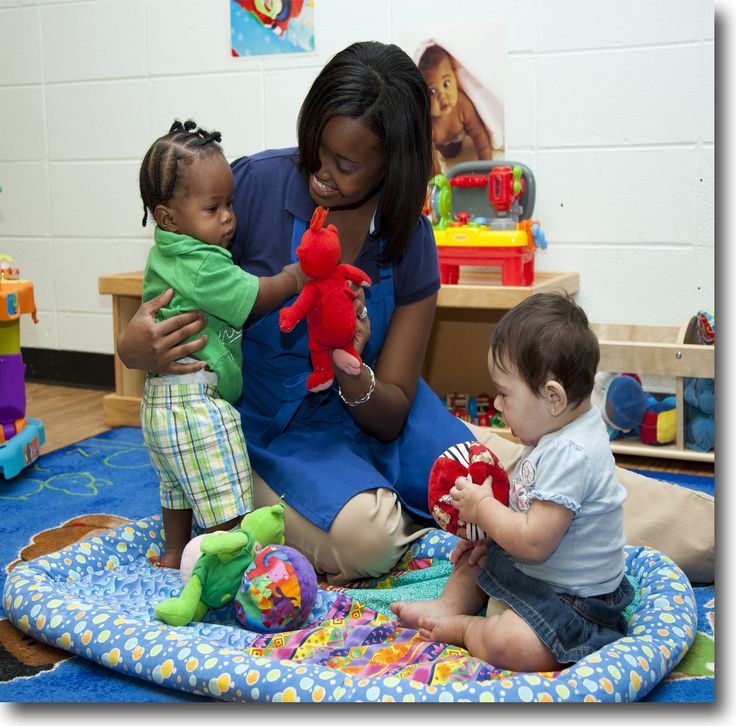 There is research showing that genetic differences have an impact on which kids are more stressed in daycare (Tucker-Drob et al 2013*). So in fact many kids do fine, while other children are more stressed.
There is research showing that genetic differences have an impact on which kids are more stressed in daycare (Tucker-Drob et al 2013*). So in fact many kids do fine, while other children are more stressed.
And here are my "relationship-based" conclusions from everything I have read.
1. Toddlers are not biologically designed to be away from parents for long periods of time. In tribal situations, two year olds do go off with the bigger kids for an hour at a time, and they love it. But when they need refueling, emotionally or physically, they are returned to the parent. (Usually they are still nursing so this is the Mom, but in a tribal situation it could certainly be Dad, big sister, Grandma, or an Auntie.)
2. What is it they need the parent for at that point? Well, the parents are their "North Star" around which they orient, their "attachment object." Other kids are never an appropriate attachment object, which is why teenagers who orient around the peer group have such a hard time.
3. Can Daycare workers be (substitute) attachment objects? Yes, and in fact that is the only way that kids can do without us while they are in school. They temporarily "transfer" their attachment focus from us to the teachers. However, the attachment relationship they provide is not usually a secure attachment because of the competing demands for their attention and because they are not usually "permanent" in the child's life.
4. The prevailing theory about why "school" is hard on little ones is that they don't have one caregiver who is always responsive to their needs. The kids who have that (in the form of a caregiver at home) don't have elevated cortisol. But that is a caregiver at home, one on one with the child. Even very good "schools" who designate a specific caregiver for three or four toddlers (and this is rare, the norm for toddlers in the US is more like six toddlers to one worker) don't have the capacity to have that person be solely available to your child. What's more, he or she will inevitably have sick days or days off, and not be available. But simply sharing the caregiver with so many kids the same age is stressful because they cannot only respond to your child's needs, whether that would be for a snuggle when he's tired, or to help him navigate a playground dispute, or to get him a drink when he's thirsty, or to delay the next scheduled activity because he wants to watch the worm on the sidewalk.
What's more, he or she will inevitably have sick days or days off, and not be available. But simply sharing the caregiver with so many kids the same age is stressful because they cannot only respond to your child's needs, whether that would be for a snuggle when he's tired, or to help him navigate a playground dispute, or to get him a drink when he's thirsty, or to delay the next scheduled activity because he wants to watch the worm on the sidewalk.
5. Daycare centers do teach kids, through experience, something about how to cope socially. However, kids can learn those same skills in playgroups with the parent there. In fact, having the parent there to give the child language for what's happening ("You want the truck and Ilan wants the truck. Two kids and one truck! How can we work this out?") and help him learn ("Ilan has the truck now, and you will have the truck next. I will help you wait. Do you want to make a road with the plow while we wait for the truck?" ) is actually MORE helpful in learning prosocial skills than just throwing him into a group situation without a designated caregiver.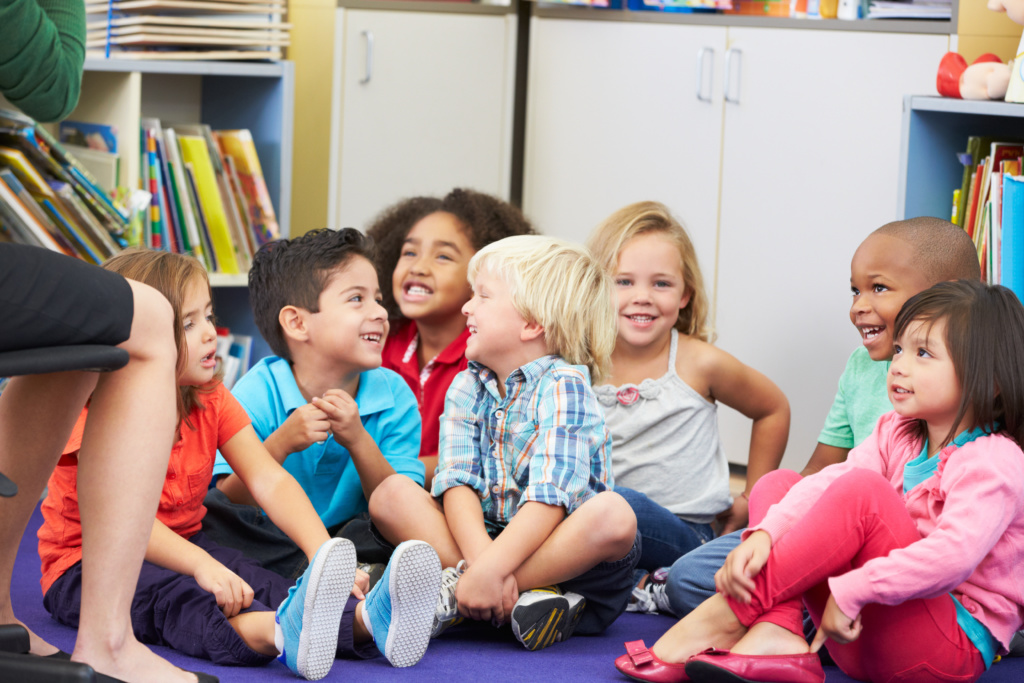 That's sort of a "sink or swim" approach.
That's sort of a "sink or swim" approach.
6. Research has shown that Empathy is the most important social skill. The development of empathy comes from being treated empathically. There is no way a daycare worker will be able to see things from your child's point of view as well as you can, or offer the empathy you can. So the most important social skill -- empathy -- is taught by the parents, not in "school" group situations.
7. Do kids get something fantastic academically out of the group setting? No. Having a parent who will stop to watch the worm on the sidewalk, who will let him move through his day at his own pace, is what makes for high IQ. Group situations may expose kids to more things than you would, but that is "sophistication" and is easy to catch up with. It is not actually the ability to think, which will develop more quickly one on one with you. Of course, there are wonderful learning experiences in school, including Montessori manipulatives, books, etc.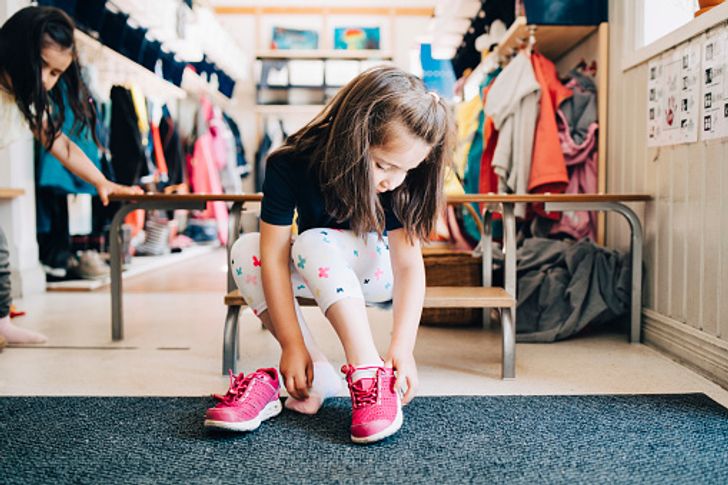 But parents can provide those things at home, or kid museums, without the downside of the separation.
But parents can provide those things at home, or kid museums, without the downside of the separation.
8. Do toddlers get something socially fantastic out of the group setting? That depends on the child. I have already spoken about the downsides for many children. The upside is that some kids LOVE the group experience and thrive on it for a few hours a day. You will know if your child is one of these kids because he will crave outings where there will be other kids, and will navigate them well.
9. We know that parents of young children who also work outside the home are often terrifically stressed and exhausted. That has to affect the parent-child relationship, totally aside from daycare.
All of that says to me that in an ideal world, parents would work part time when their kids are young. As Stanley Greenspan, noted US researcher and author on child development, suggests, if two parents each work 2/3 time, then they can each be with the child 1/3 time. The last 1/3 of the child's time can be with a carer at home, which we know is much less stressful than a daycare center.
The last 1/3 of the child's time can be with a carer at home, which we know is much less stressful than a daycare center.
But our work situations and finances rarely allow that perfect world, although I believe we should all be fighting for it. Short of that, I recommend that when parents can, they delay the start of daycare at least until 12 months, and preferably delay full-time care until age four.
Luckily, you have a choice. If it were me, I would have my son stay home another year, especially because he is going to be away from you 2-3 afternoons a week regardless. But I did not have kids who craved the group experience.
There is one more important issue in your decision. Given that most of his peers will be in school already, the question is, are there any playgroups you can join with him, where you will be with him at the playgroup? Even informal ones at the park? What happens to the other ten percent of kids, who are not in school? Do their parents take them to playgroups in the park or "Mommy/Daddy and Me" classes for music or swimming or anything? Of course, going to the store or gardening or to the museum or market with you -- these experiences are not social, but are IQ-expanding and fantastic for him to do with you.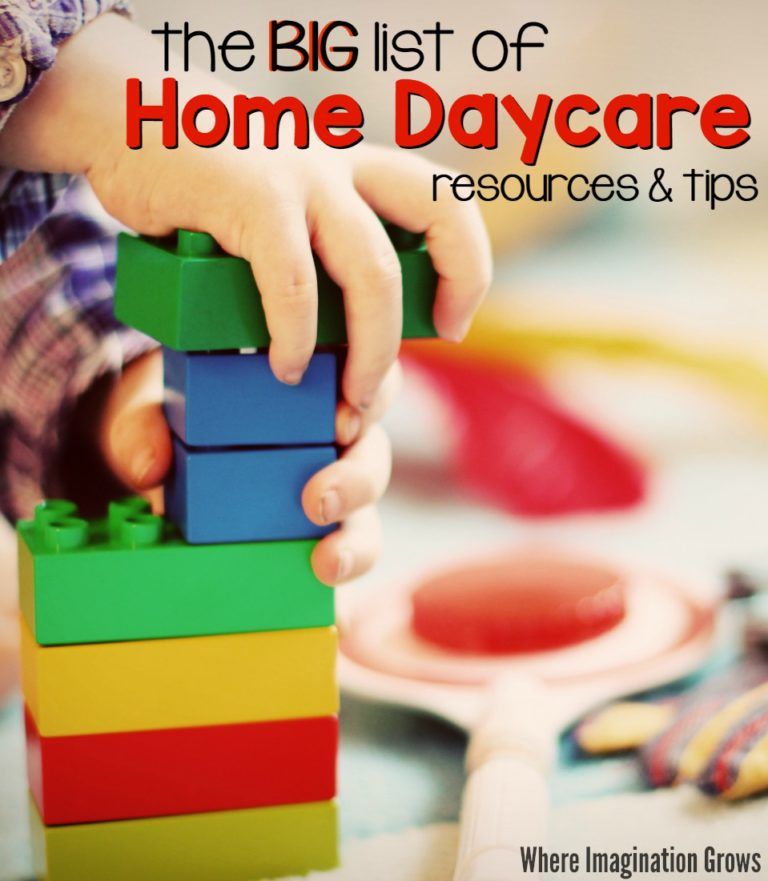 And a weekly trip to the library is wonderful. And if he has friends come over in the afternoon after they are out of school a few days a week, that is plenty of social play. You could even think of this as "home schooling" for this year.
And a weekly trip to the library is wonderful. And if he has friends come over in the afternoon after they are out of school a few days a week, that is plenty of social play. You could even think of this as "home schooling" for this year.
Good luck!,
Dr. Laura
*Badanes LS, Dmitrieva J, and Watamura SE. 2012. Understanding Cortisol Reactivity across the Day at Child Care: The Potential Buffering Role of Secure Attachments to Caregivers. Early Child Res Q. 27(1):156-165.
*Tucker-Drob EM and Harden KP. 2013. Gene-by-preschool interaction on the development of early externalizing problems. J Child Psychol Psychiatry. 54(1):77-85.
Click here to see this article in Romanian!
At what age children are sent to kindergartens - when is it better to let a child go and at what age can one go to school
When is it better to send a child to kindergarten
development, nurseries and other institutions where you have to leave the baby for a few hours or a full day. On the other hand, not everyone is spoiled by grandmothers who are burning with the desire to devote themselves to their grandchildren, but the need to earn money and provide for the family remains. The dilemma is solved in different ways.
On the other hand, not everyone is spoiled by grandmothers who are burning with the desire to devote themselves to their grandchildren, but the need to earn money and provide for the family remains. The dilemma is solved in different ways.
The peculiarity of joining a team is a too abrupt change in schedule and social circle. It’s good if mom or dad can not work or take a vacation for 1-2 months to spend more time with the baby and follow the principle of gradualness, when the child is first left in the group for 1 hour. Then for 2 and so bring to a full day. At this point, colds may become more frequent and not all of them will be caused by an infection or a virus. Psychosomatic reasons are also possible.
At what age do children enter kindergarten
The optimal interval is from 1.5 to 3 years. Previously, many have not yet formed a set of simple self-service skills. Later, the habit of being in the center of attention of the family already appears, which makes it difficult to adapt.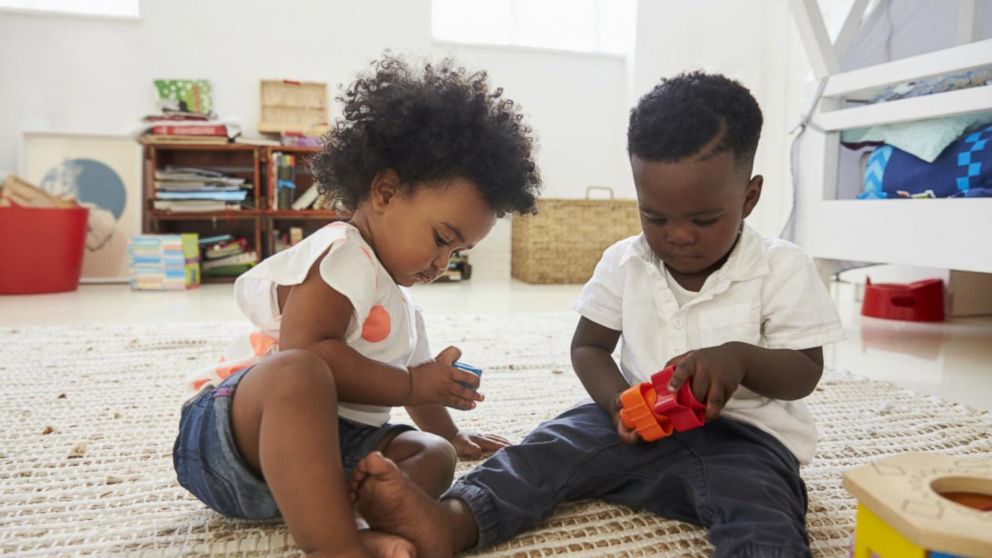
It is also important to look at psychological readiness. It occurs in babies at different times. There are those who are already at 1.3 closely at home and in some cases even this option is considered. If a three-year crisis has begun, then it is wiser to wait six months until the ability to negotiate and concede returns, and then plan the date when to go to kindergarten for the first time.
If circumstances permit, it is better to start visiting from the last month of summer and smoothly enter the autumn off-season. So there will be fewer diseases, and more positive emotions from the new place and the company of peers.
Age characteristics of children
Most preschool institutions have the right to accept a pupil from the age of 1. But most often, beginners come to the second younger group, from 3-4 years old, and there is a logical explanation for this.
Babies do not strive for communication, they need only knowledge of the world around them and reliable hugs from their parents. They do not yet have a desire to expand this safe circle, kids do not feel the need to share and generally perceive their peers as fun toys.
They do not yet have a desire to expand this safe circle, kids do not feel the need to share and generally perceive their peers as fun toys.
By the age of 3, self-awareness as a person comes, conscious desires appear, the concept of compromise, curiosity gradually arises in relation to peers, attempts to establish a dialogue. Speech is developing, there is a good vocabulary, a craving for story games is visible.
The older the child, the wider his interests and these natural impulses cannot be restrained. It is necessary to provide him with a field of activity, a developing environment, and usually this happens by 3-4 years. This interval is considered the most successful for adaptation to new conditions.
How to understand that a child is ready for kindergarten
There are a number of signs indicating that the time has come:
- basic self-care skills have been formed;
- there is a clear concept of "one's own - someone else's" in relation to things;
- there is a need to engage in independent activities;
- calmly tolerates the absence of parents nearby;
- have an interest in classes.
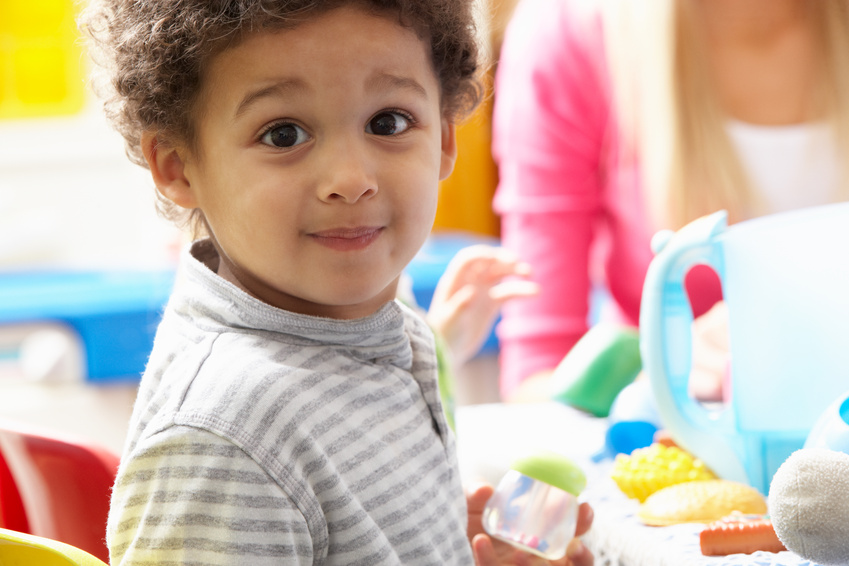
The moral aspect must be taken into account. With all the difficulty with places in groups, you need to listen to the opinion of the baby. If he categorically does not want to stay, does not allow the teacher to come to him, then he will have to postpone the first visit or find another institution. Children feel a lot on an intuitive level, and in order to avoid future problems, it is better to listen to your child.
How to prepare for kindergarten, if it's still too early
The work is to be systematic and at once on 2 levels: domestic and psychological. In the first case, everything is quite simple - you need to learn how to dress, ask for a potty, recognize your things, and eat carefully. In the second, if a small homebody grows up, then visit the playground more often, go to visit, gradually forming the skill of communicating with unfamiliar people. When hyperactivity and incontinence is observed, it is necessary to show that others experience the same emotions as he does, have their own desires and needs, and this will have to be taken into account.
It is useful to establish a clear daily routine at home, introduce them to story games, periodically do simple crafts together, and collect constructors. And also create a positive impression by talking about interesting holidays, friends who will certainly appear, joint and fun walks.
Which kindergarden to choose: private or public
Against the backdrop of a total shortage of places around, a large selection of non-state educational institutions, including pre-school ones, has appeared. They offer a lot of interesting programs, individual development and other bonuses, but require the financial solvency of the parents. The municipal option is much more economical, but it has its advantages and disadvantages. This aspect must be thought out in advance, weighing your desires and possibilities. It is also important to look at possible options and find out how the groups are equipped, what qualifications the educators have, whether there is a psychologist and physical education instructor on staff, whether the quality of food meets accepted standards.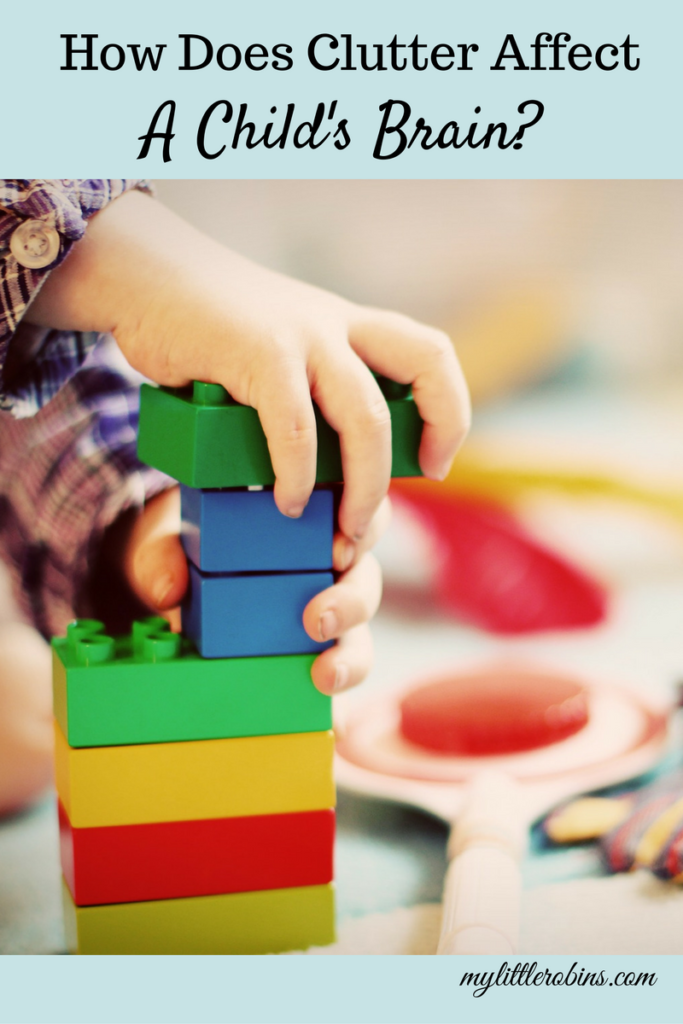
State kindergarten
Its main advantage is accessibility. You can stand in line literally in the first days after the birth of a child. The system of work of the institution has been worked out for decades. Benefits:
- Full compliance of conditions with the requirements of the SES, Rospotrebnadzor and other regulatory authorities;
- low pay;
- developmental programs are developed taking into account the subsequent transition to school, guarantee training at a general level;
- balanced nutrition;
- the regime of the day is observed strictly;
- the staff must have a nurse and a psychologist;
- offers additional classes for the disclosure of creative data.
Having found out at what age children go to kindergarten and specifying how pupils are admitted in accordance with the charter, you can slowly prepare the child, walk several times to the walking area, watch how others play, accustom him to the idea that there good and he will be happy.
Disadvantages are a large number of groups, sometimes up to 30 people, an average system of development with a focus on mass character, problems with staffing.
Private kindergarten
Children are accepted here from a very early age, their number is small, so an individual approach to each is implemented. The undoubted advantage is modern equipment, bright design of the playing area, developing programs using author's methods. You can choose several types of activities, forming a personal vector with an emphasis on the area of interest to the child at the moment. The food is more varied, but within the limits recommended by nutritionists by age.
When visiting, you can choose the hourly option or the full day with daytime naps. In short-stay groups, they are guided by a busy work schedule, with obligatory game minutes and free creativity time.
Many consider the high cost of services and the lack of regular control by inspection bodies to be the main disadvantage.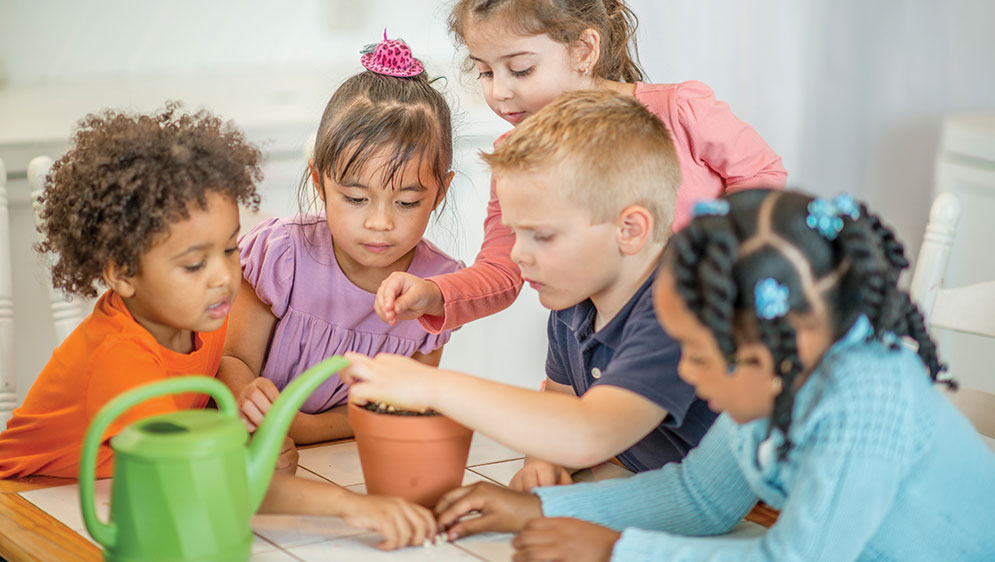
The positive aspects of the kindergarten
A person cannot exist outside of society, therefore, it is necessary to form the skills of a good neighborhood with peers from an early age, so that a boy or girl can easily find a compromise, learn to act in a team, be responsible for their actions without discounting age and privileged position in the family. It is these tasks, along with systematic development, that are considered the main ones in a preschool institution, regardless of its form of ownership.
Rules and boundaries
When discussing with relatives at what age to send a child to kindergarten, it is necessary to take into account that there are rules of behavior for pupils. For those who have formed the habit of getting their way with screaming and tantrums, adaptation will be difficult. It is worth acquainting the baby in advance with the fact that not everything will be according to his desire, you need to focus on others. It is also important to tell that in the garden there is a daily routine and an algorithm for conducting classes in which it is required to fulfill the requests of the teacher.
A sense of collectivism
A very useful skill that allows you to calmly enter any circle in the future without experiencing much stress from changing conditions. Toddlers gradually master the art of negotiating, playing together, giving in to another. Parents should pay attention to the fact that the desire to "be with everyone" does not develop into dependence on someone else's opinion. And this is already the task of the family - to teach, without violating the general order and not to the detriment of others, to defend their point of view, giving arguments.
Motor activity
A modern child begins to understand gadgets much earlier, ignoring the need for walks and communication. There is a clear daily routine and a considerable place is given to sports games, musical and rhythmic entertainment, and recreational activities. Hypodynamia does not threaten. For those who have energy in full swing, you can choose a sports or dance circle. They work in most kindergartens of any type.
Daily routine
It can be argued that it is not needed and considered as a restriction of freedom. But a clear routine is necessary for babies and older children to maintain health, as periods of activity alternate with rest and quiet games. Food is taken on time, walks and activities are distributed taking into account age characteristics. Daily adherence to the schedule keeps the child's physiological, psychological and emotional state normal, especially if he is hyperactive and constantly aroused. Gradually, his tension is removed, and his behavior stabilizes.
Preparing for school
Continuity in learning is necessary for a smooth transition to the next stage of development. Ensuring family adherence to this principle is difficult. In kindergarten, it is the foundation. That is why kids, moving from one group to another, master more and more complex skills, based on the experience gained earlier.
They broaden their horizons, learn to communicate on various topics, master new skills.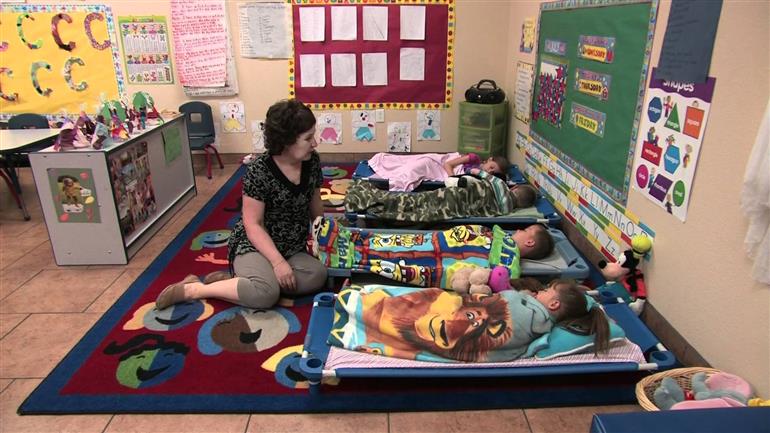 The work is carried out on the basis of the approved educational program.
The work is carried out on the basis of the approved educational program.
Order and manners
A well-mannered person greets guests, thanks for their help, uses the whole arsenal of polite words, knows how to behave at the table and put his things away. Educators teach this from the first days, and the child will feel confident in any society.
Negative aspects
Some parents are categorically against the pre-school institution, arguing that:
- children get sick more often;
- have a hard time being separated from loved ones;
- do not eat the dishes offered for breakfast;
- unreasonable whims begin and behavior worsens;
- not quite decent words slip through the speech.
At the same time, providing a baby with greenhouse conditions at home means dooming him to severe stress when faced with the realities of life. Knowing what disadvantages can be when visiting a kindergarten, you can try to minimize the consequences.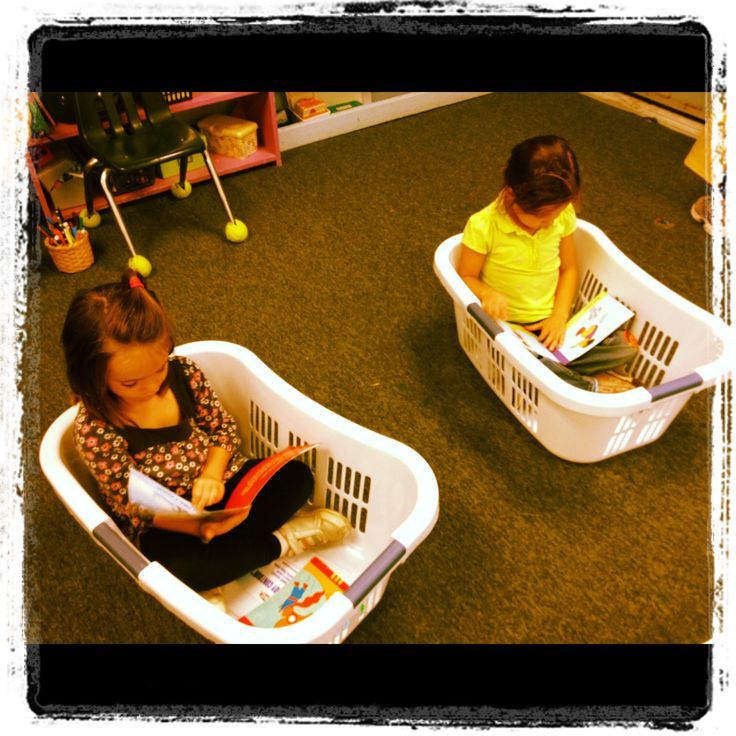
Separation from family
The absence of a mother or father nearby is hard for some children. The educator, with a group size of 25-30 pupils, is not able to give everyone as much attention as he had previously received at home. If this state of affairs is too hard to bear, it is worth postponing visits to the preschool.
Also, the baby will inevitably demand independence. So that he does not receive negative emotions again, it is advisable not to limit his communication only to his inner circle. You need to accustom to the kindergarten gradually, adding the time spent by 1-2 hours as you adapt in the team.
Lack of development of the child's individuality
With a large number of children, it is really difficult to ensure the full disclosure of talents and abilities. Programs are compiled with a focus on average age data. The main task is to create a stock of basic knowledge and skills.
On the other hand, nothing prevents parents from simultaneously enrolling a child in an art, sports or music school, attending theaters and exhibitions with him, Sunday creative studios for preschoolers.
A bad example of other pupils
It is unlikely that parents will be pleased with the replenishment of the heir's vocabulary with obscene words or an attempt to clean his nose with his finger. Bad habits are formed instantly, but there is reason to talk about it, to discuss whether it is worth imitating a playmate in everything or having your own opinion, adhering to it.
Frequent morbidity
Questions about when you can go and at what age to send your child to kindergarten, it is better for parents to decide, based on the condition of the baby. But at any age, when conditions change, his immunity inevitably decreases, and the reason here is not only in the cool air in the bedroom or not wearing a scarf for a walk. The diet, daily regimen is changing, there is also an emotional component. You can help by hardening, increasing the share of vegetables and fruits in the menu, and, of course, parental love.
Food problems
Every family has its own taste preferences and favorite dishes.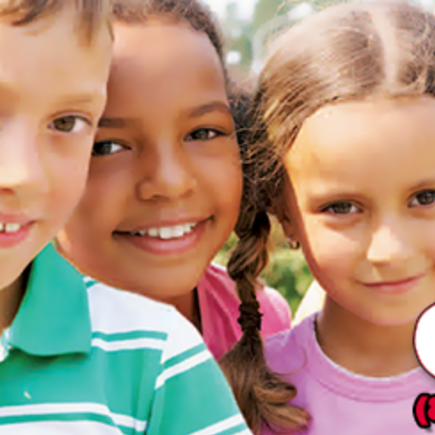 But the diet in kindergarten is compiled taking into account the recommendations of nutritionists, and the pupil does not always like it. There are also personal whims. They gradually cease when the spirit of collectivism kicks in. Seeing that the others dine with appetite, the child also decides to try what was offered.
But the diet in kindergarten is compiled taking into account the recommendations of nutritionists, and the pupil does not always like it. There are also personal whims. They gradually cease when the spirit of collectivism kicks in. Seeing that the others dine with appetite, the child also decides to try what was offered.
If you have an allergy to certain foods, you must inform the nurse in advance. Other side dishes or drinks are prepared for such children.
Personnel problems
Unfortunately, the prestige and salary of an educator are not as great as we would like. Most of the graduates of the departments of preschool education prefer to change their direction of activity immediately after the final exams. And often this is the most talented category. When choosing a kindergarten and a group, pay attention to the personality of the teacher, or rather, introduce the child to him and look at his reaction. If he stretched, then everything is in order. In case of a sharp refusal to communicate, it is better to look for another option.
In case of a sharp refusal to communicate, it is better to look for another option.
Recommendations about when and at what age children most want to go to kindergarten can vary. The main thing is that the baby is mentally prepared for the event, has the necessary household skills and strives for new experiences.
What is the best age to send a child to kindergarten
Is it best to send a child to kindergarten, and if so, when is the best time to do so? Many parents face this question, and it is often difficult to give an unambiguous answer to it. But at some point you still need to make a decision. We have prepared this article to talk about the pros and cons of kindergarten, how to understand whether the baby is ready for such changes in life, and also to help parents decide what age the child is most suitable to start attending kindergarten.
Kindergarten is a relatively recent “invention”. The child's stay all day in a large children's team, also under the supervision of not parents or other relatives, but educators and nannies - strangers, in general, people. Therefore, kindergarten can cause serious stress in children. But in the realities in which we live, not all parents have the opportunity to stay at home with the baby for a long time without going to work. The financial factor can play a significant role at the time of deciding whether to send the child to kindergarten. Often, parents strive to return to work as soon as possible, so they are looking for an opportunity to enroll a child in a kindergarten or nursery at 1.5 years old, and sometimes even earlier.
Therefore, kindergarten can cause serious stress in children. But in the realities in which we live, not all parents have the opportunity to stay at home with the baby for a long time without going to work. The financial factor can play a significant role at the time of deciding whether to send the child to kindergarten. Often, parents strive to return to work as soon as possible, so they are looking for an opportunity to enroll a child in a kindergarten or nursery at 1.5 years old, and sometimes even earlier.
There is also a fairly widespread opinion that communication with peers and accustoming to independence and, on the other hand, to discipline and obedience should begin from an early age. Undoubtedly, the experience gained in kindergarten seriously affects the future life and development of the child, but it is worth remembering that even the most active, independent and sociable children under 3 years of age need parental attention and care as much as possible, and contacts with other children can be not very interesting yet.
Both supporters and opponents of the kindergarten as a phenomenon have weighty arguments in favor of their positions. The former emphasize the need for children to communicate with each other, to develop the ability to exist in a team, which will be useful to the child in the future. The second believe that the child is enough to communicate with relatives at home, and with peers you can contact on walks or circles, and then at school. In addition, the additional load on the baby's immunity leads to the fact that he is sick more often, and this fact can also cause anxiety for parents. Let's dwell a little more on the positive and negative sides of the kindergarten.
Pros
1. Socialization
The most important thing that kindergarten gives a child is the opportunity to be among peers, communicate with them, learn to coexist. The first friendship, the first conflicts and their resolution, the search for one's place in the team - all this will help to better build relationships with people in the future, first at school, and then in adulthood.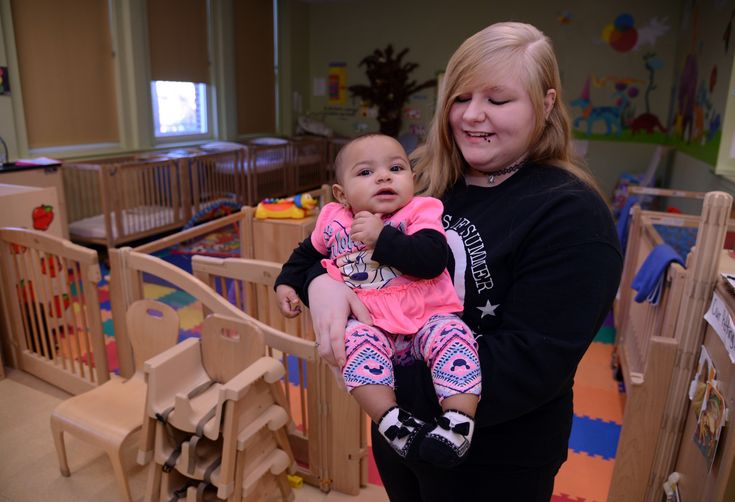 Early experience of such interaction can be especially useful for the only child in the family, as well as for those children who communicate little with their peers for one reason or another.
Early experience of such interaction can be especially useful for the only child in the family, as well as for those children who communicate little with their peers for one reason or another.
2. Development of speech skills
The second point logically follows from the first point - in order to communicate, one must speak. Often, it is during the period of attending kindergarten that a child experiences a powerful breakthrough in the development of speech. Mom and dad often understand their child without words, so he can try less to learn to speak clearly and correctly, not seeing the need for it. Contact with a large number of new people, as well as a variety of activities and activities in kindergarten will help the child learn to speak faster.
3. Independence
At home, the baby gets used to the fact that parents do a lot for him, so the desire for independence and the development of everyday skills can in some cases be somewhat inhibited. In a kindergarten, a child, of course, will not be left without help and support, but apart from the home environment, skills will develop faster.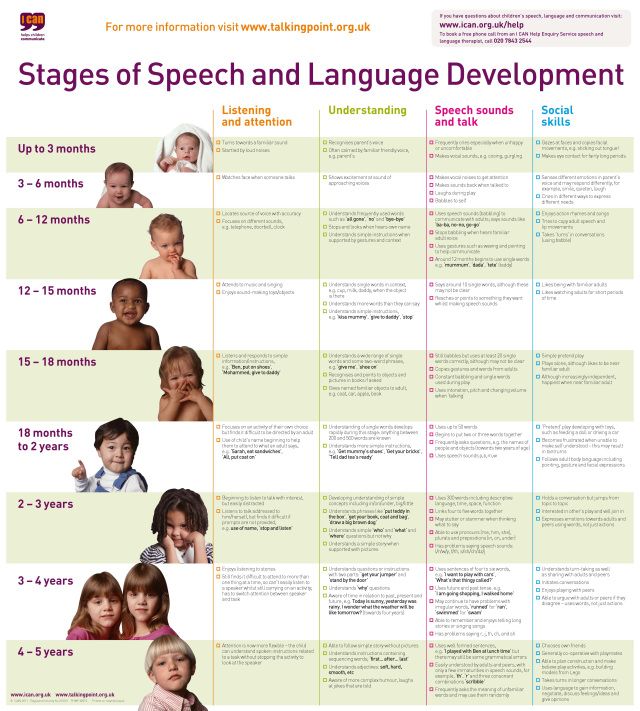 In addition, it may be interesting for a child to imitate more skilled peers, try to catch up with them and feel more mature.
In addition, it may be interesting for a child to imitate more skilled peers, try to catch up with them and feel more mature.
4. Getting ready for school
Last but not least, attending a kindergarten is useful for a child as a preparatory stage before school. Homework can not always replace the varied and versatile program of preschool education, which is compiled for kindergartens by teachers and psychologists. In the kindergarten, the kid will not only gain new knowledge, but also learn perseverance and attentiveness, which will be very useful to him later, in the classroom at school.
5. Steady daily routine
The physical and mental state of the child largely depends on compliance with the daily routine. At home, it is not always possible to observe it, and if single violations of the regime do not bring harm, then the complete absence of a stable routine can be fraught with problems in the future. Kindergarten, on the contrary, is a territory where everything is subject to the regime. Meals at the same time, a very important daytime sleep for the child, mandatory physical activity and walks on the street - all this has a positive effect on the health of the baby, and also disciplines him and teaches him to be punctual.
Meals at the same time, a very important daytime sleep for the child, mandatory physical activity and walks on the street - all this has a positive effect on the health of the baby, and also disciplines him and teaches him to be punctual.
Cons
1. Frequent illnesses
Many parents, sending their child to kindergarten, are faced with the fact that the baby begins to get sick much more often, often the days spent in the kindergarten turn out to be almost less than those when the baby was unwell and stayed at home. This is how the reaction of children's immunity to a large number of new stimuli looks like, some time must pass for the adaptation period to pass, and children's health to improve. If possible, start attending kindergarten in the summer, as the maximum risk of getting sick is from October to April.
2. Stress
It is a big shock for a child to be separated from his mother for the whole day, a new environment, people who are unfamiliar at first - educators and group mates. The baby may become more nervous and moody, cry more often and sleep worse. For some children, the stressful state disappears quite quickly, others adapt to new conditions for a longer time, but, in any case, the child needs parental support and help even more than before.
The baby may become more nervous and moody, cry more often and sleep worse. For some children, the stressful state disappears quite quickly, others adapt to new conditions for a longer time, but, in any case, the child needs parental support and help even more than before.
3. Nutrition problems
Kindergarten menu often differs from the child's usual diet. Even familiar dishes can be prepared in a different way and not like the baby, he loses his appetite, refuses to eat. In addition, if your child is not yet very good at feeding himself, he may have difficulty during meals in the kindergarten, eat too slowly and not have time to satisfy his hunger while it is time, for example, breakfast or lunch.
4. Incompetence of teachers
Unfortunately, it is still not uncommon for educators to be far from professionalism and the ability to competently resolve various situations when communicating with children. More often than we would like, impatience and irascibility of teachers, their too authoritarian or, conversely, too soft behavior, are also encountered.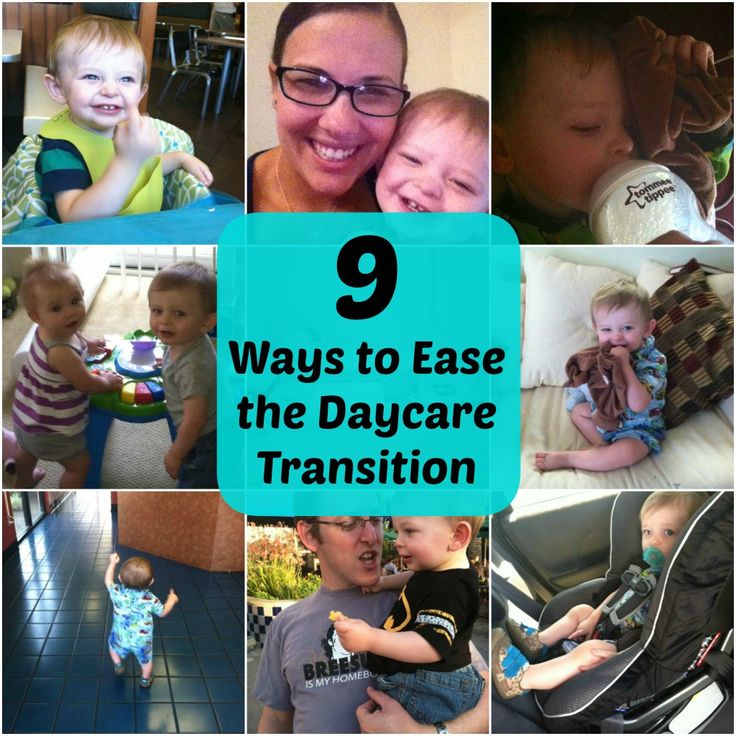 Get to know the caregivers in advance, look for reviews about the kindergarten in which you want to give the baby, in order to minimize the risk of the child having an unpleasant experience.
Get to know the caregivers in advance, look for reviews about the kindergarten in which you want to give the baby, in order to minimize the risk of the child having an unpleasant experience.
5. Changing behavior for the worse
The child has been going to kindergarten for some time, and gradually you stop recognizing your own child - he becomes more aggressive or whiny, more reserved than before, stops listening to you and uses words that you would not like to hear from a small child in own house. This can be the influence of both stress and communication with other children in the group.
Your task at this difficult time is to closely monitor the physical and psycho-emotional state of the child, solve problems that arise, and help with adaptation. If the cons outweigh the pros, then you may one day decide to take the baby out of kindergarten completely, and in some cases it will be absolutely correct, since the psychological comfort of the child should always be a priority.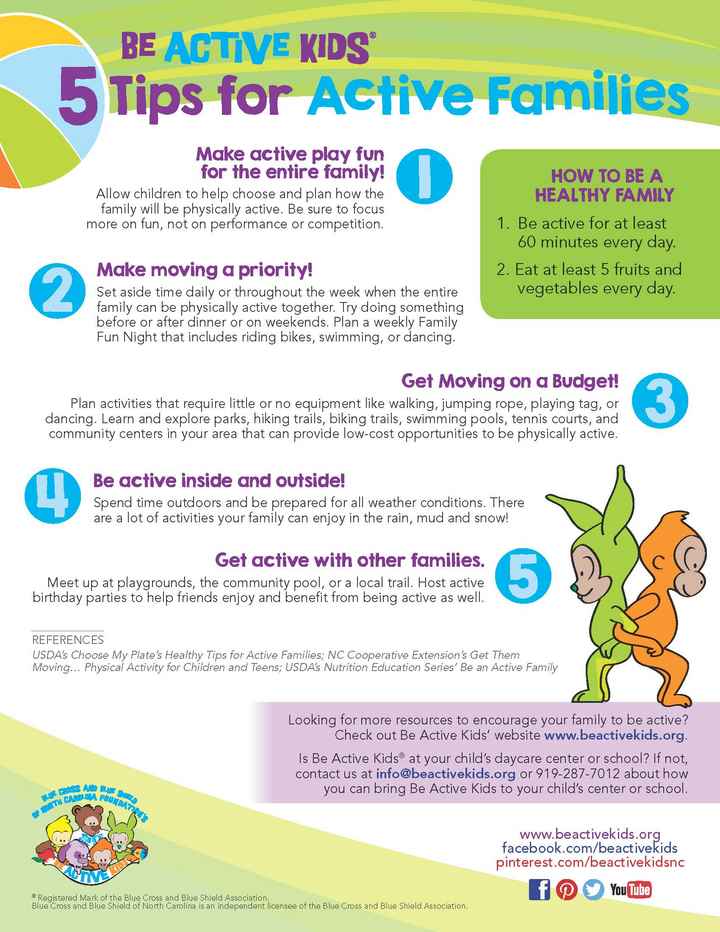
1.5 - 2 years
In most cases, children from one and a half years old are accepted into the nursery group of the kindergarten, in some situations this figure may be less. However, most psychologists agree that, unless absolutely necessary, you should not tear the child away from the mother so early and leave it in the kindergarten for a long time. At one and a half to two years, the center of the baby's world is the mother and what is connected with her, and communication with strangers, even children of the same age, takes the baby much less.
At the same time, early acquaintance with the kindergarten has its advantages. In a nursery, a one and a half year old baby learns speech faster, refusal of a pacifier and diapers can happen faster than at home. The child gets used to discipline and organization.
Most of the problems at this age arise due to the fact that not all children are ready to leave their mother so early for a long time, so it is better not to force things and carefully monitor the emotional state of the child. If the baby cannot get used to being among strangers, yearns for his mother, is constantly in a state of stress, it is worth taking a break, taking him out of the kindergarten and waiting for the right moment.
If the baby cannot get used to being among strangers, yearns for his mother, is constantly in a state of stress, it is worth taking a break, taking him out of the kindergarten and waiting for the right moment.
2 - 2.5 years
A two-year-old child already has greater psychological stability, is interested in communicating with other children and suffers less from separation from mom and dad. In addition, many children at this age have better developed speech and self-care skills. A two-year-old can more easily adapt to a daily routine and can focus on games or activities for longer.
At the age of 2.5, the process of separation gradually begins and the craving for independence increases, but at the same time a conflict may arise due to the need to obey educators - strangers, in fact, people. Parents need to talk with the child all the difficult moments, when parting, be sure to talk about their plans, agree on the time when the baby will be taken home.
3 years or more
By the age of three, most of the habits and skills needed for kindergarten have been formed. But here a trap in the form of a serious age crisis may await us. If before that, even with a certain interest in other people, the center of the baby’s world was the mother, then at the age of three we get a flash of independence, a desire for socialization and a growing need to communicate with peers, participate in collective games. In the speech of the child, “I myself!” begins to sound like a refrain, and at this moment it is not easy for both him and his parents. At the peak of a critical period, sending a baby to a kindergarten is not the best idea, since the changes taking place in the inner world of the child and in the family circle will be complemented by external difficulties - adaptation to a new place and people. A sharp restructuring of the mode of life at the time of the crisis can adversely affect the child's condition.
But here a trap in the form of a serious age crisis may await us. If before that, even with a certain interest in other people, the center of the baby’s world was the mother, then at the age of three we get a flash of independence, a desire for socialization and a growing need to communicate with peers, participate in collective games. In the speech of the child, “I myself!” begins to sound like a refrain, and at this moment it is not easy for both him and his parents. At the peak of a critical period, sending a baby to a kindergarten is not the best idea, since the changes taking place in the inner world of the child and in the family circle will be complemented by external difficulties - adaptation to a new place and people. A sharp restructuring of the mode of life at the time of the crisis can adversely affect the child's condition.
Most psychologists believe that the optimal age to send a child to kindergarten is after three years. The crisis has already passed, the baby has a keen interest in communicating with peers, the emotional mood is less dependent on the presence of parents nearby on an ongoing basis.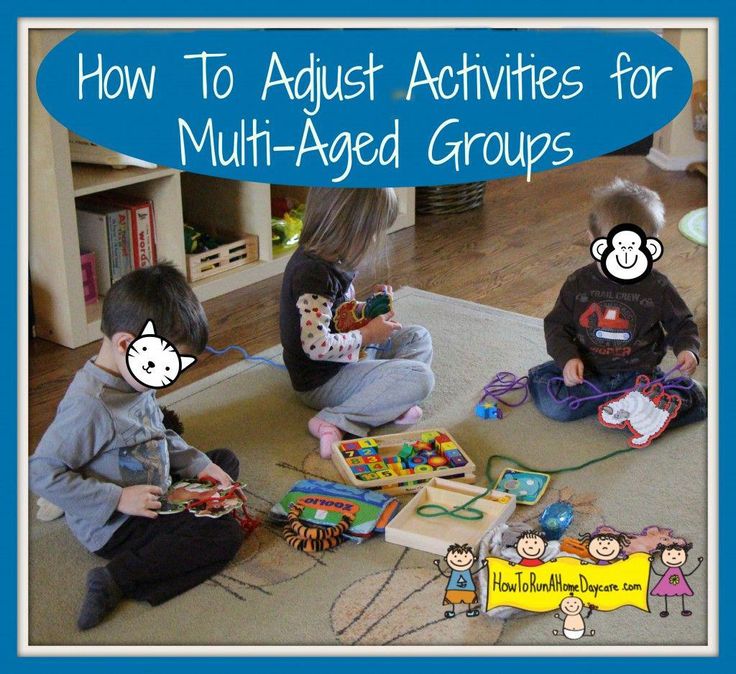 By the age of 3.5 - 4 years, many children already speak fluently and do not experience serious difficulties in communication.
By the age of 3.5 - 4 years, many children already speak fluently and do not experience serious difficulties in communication.
For different ages, the set of desirable skills is somewhat different, but the main thing is the child's psychological readiness to attend kindergarten. Here are a few signs that indicate that a child can be sent to kindergarten:
- the child is interested in communicating with peers, easily makes contact and finds a common language;
- the absence of mom and dad for several hours does not become a reason for tears and stress;
- the baby is already accustomed to the daily routine, similar to kindergarten, or easily gets used to it in the process of preparation;
- the child can eat by himself, he dresses and undresses himself or with minimal help from adults;
- can play alone or with other children for quite a long time (from 30 to 40 minutes).
Many parents worry about the toilet, but even if your child still needs diapers, potty training in kindergarten is fast enough and does not cause any particular difficulties for the baby.